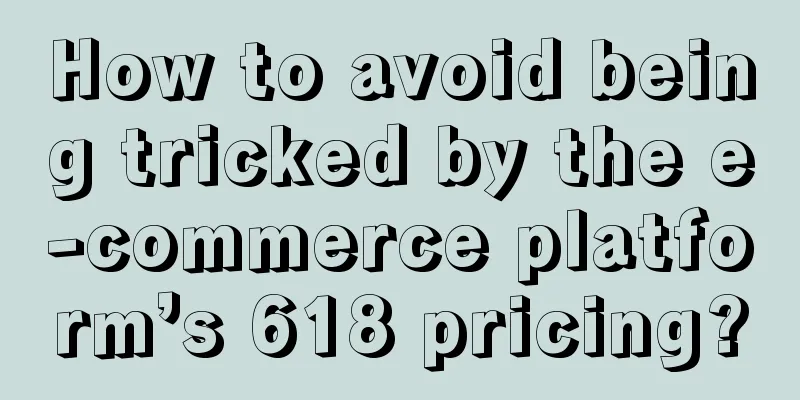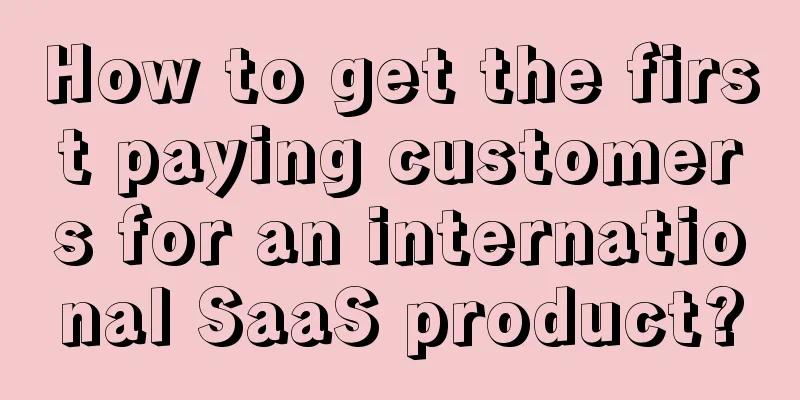There are anti-counterfeiting bloggers everywhere, how do they make money?

After all, it is a traffic business. "In X City, I will beat up any gold shop that dares to cause trouble recently." "X City, I want to give it a good rub." "The more arrogant you are now, the more embarrassed you will be later." Since mid-May this year, a number of "anti-counterfeiting" bloggers have taught a lesson to local "ghost scale" merchants in Lianyungang, Nanjing, Wuhu, Anhui and other places. Once the live videos of these bloggers being robbed of their phones and physically pushed during negotiations with the merchants and market managers involved were released, they immediately sparked heated discussions and frequently appeared on hot searches. Subsequently, many "ghost scale" incidents were punished - the merchants involved were cleared out of the market, and both the merchants and market managers were fined. These anti-counterfeiting bloggers also gained a lot of followers and were regarded by some as "anti-counterfeiting heroes" and "messengers of justice." This is not the first time that similar videos on anti-counterfeiting have become a traffic secret. Previously, there was the blogger "B Tai" who exposed the fake scales of roadside durian vendors. He has more than 20 million followers and his videos on anti-counterfeiting often get millions of likes. Later, the blogger "Tie Tou Punishes Evil and Promotes Good" (hereinafter referred to as "Tie Tou") gained more than 2 million followers in 5 days because of his exposure of the short weight of a seafood market in Sanya. Now, no matter which city the anti-counterfeiting bloggers go to, they will provoke the nerves of businesses and netizens - for example, local netizens shout at businesses to "stop losing face", and netizens from other places shout at bloggers to go to their cities to "clear mines and vent their anger." Anti-counterfeiting bloggers first became popular because of their "boldness" and "righteousness". In their short videos, they showed that they were not afraid of offending merchants. After collecting evidence from consumers, they often defended their rights against irregularities such as short weight, random charges, and selling inferior goods as good ones, thus gaining a high degree of trust from fans. After rapidly increasing their followers, some anti-counterfeiting bloggers began to frequently fail. For example, "Tietou" was banned from the entire Internet for self-exposure to pornography in the live broadcast room. However, "one Tietou falls, and thousands of Tietou stand up." While anti-counterfeiting bloggers earn traffic, there are constant doubts from the outside world: Is anti-counterfeiting for justice or traffic? Will using such a fierce way to protect rights bring side effects? Why do bloggers frequently fail after they have fans and start to promote products? 1. Fight against fake bloggers and take over short videosSince the anti-counterfeiting blogger "Tietou" was banned from the entire network in February this year, there have been more and more similar anti-counterfeiting bloggers on short video platforms. In particular, the number of fans of this type of blogger has soared in the past month. Since mid-May, "ghost scale" incidents have occurred in many cities and have frequently appeared on hot searches. Anti-counterfeiting bloggers are often behind the "ghost scale" incidents. On May 16 this year, anti-counterfeiting blogger "Kuangbiao Brothers" said that he encountered a "ghost scale" in the Lianyungang Seafood and Vegetable Direct Sales Market. When he sought help from the market management, he was surrounded by the other party and his mobile phone was snatched away. On May 19, the Lianyungang Haizhou District Joint Investigation Team issued a notice stating that the merchants involved were fined 30,000 yuan, the market organizer was fined 350,000 yuan, and the staff of the market organizer were placed under administrative detention. Blogger "Kuangbiao Brothers" fights counterfeiting in Lianyungang Coincidentally, on May 18, the anti-counterfeiting blogger "Black and White One Two" posted a video saying that he bought fish at a farmer's market in Nanjing. When he re-weighed it, he found that it was 4 taels less. He then sought help from the market manager, but the manager snatched his phone and smashed it. The merchant involved has been cleared out. On the same day, the anti-counterfeiting blogger "Iron Fist Attack" posted a video saying that he encountered "shortage of weight" in a fruit store in Nanjing and was "beaten" by the store owner. The store has now suspended business and was fined 32,000 yuan. Anti-counterfeiting videos posted by bloggers "黑一二" and "铁拳出击" On May 25, "Iron Fist Attack" released another video saying that a gold recycling store in Wuhu, Anhui Province encountered a "ghost scale". About 31 grams of gold was weighed less than 16 grams in the store. Later, the merchant was fined 22,000 yuan. From mid-May to now, this kind of "ghost scale anti-counterfeiting" incidents have occurred in many places, and bloggers continue to update videos. The "ghost scale" incident became the focus of national attention; the blogger was "threatened" for fighting against counterfeiting, which also sparked a hot topic. As of now, the keyword "ghost scale" has been on 13 Weibo hot searches in the past month, and topics such as "ghost scale" and "anti-counterfeiting" have nearly 40 billion views on Douyin. It is worth mentioning that the content, style and personality of the videos shot by the anti-counterfeiting bloggers are similar to those of the banned internet celebrity "Iron Head". These bloggers all start from the common consumer traps in daily life. After collecting evidence through consumption, most of them will shout at the scene, use their momentum and voice to "make things bigger", create the image of "iron fist" and "crazy" with a sense of justice, and finally end with giving rights protection results. Fighting against counterfeiting has brought traffic to bloggers. Their way of protecting rights has helped consumers avoid potential consumer traps, and to a certain extent has played a role in supervising and deterring businesses and correcting market trends. "These bloggers have also broken the unequal status between consumers and businesses to some extent," said Jerry, a senior short video IP operator. Zhang Ranran, a lawyer at Beijing Zhongyin (Nanjing) Law Firm, said that these anti-counterfeiting bloggers have raised consumers' legal awareness and rights awareness, and promoted legal education in the process of fighting against counterfeiting. Some consumers have begun to have the awareness of rights protection by trial weighing and re-weighing. User comments on "anti-counterfeiting" are a short video content track that is relatively easy to attract fans and build trust, and the bloggers' live broadcast and fan growth data also confirm this. The anti-counterfeiting blogger live broadcast on the video account, with more than 60,000 viewers In a recent live broadcast, "Kuangbiao Brothers" revealed their total platform viewing data, of which Video Account has about 100 million, higher than Douyin's 70 million and Kuaishou's 40 million. At the same time, these bloggers have recently started to broadcast frequently on Video Account, and the live broadcast room can often reach 60,000 to 70,000 viewers, which is much higher than other types of live broadcast rooms. "Fixed focus" mapping data source/Xindou According to erry's analysis, from the perspective of market demands, consumers have long suffered from "shortage of weight", but it is time-consuming and laborious to protect their rights and it is easy to fail. The video content of this type of anti-counterfeiting bloggers shows the characteristics of solving problems and helping consumers to vent their anger, and netizens will spontaneously push such videos to higher traffic. From the perspective of content attributes, short video platforms also need works with gimmicks and strong interactions, and anti-counterfeiting videos meet the needs. "The more businesses try to stop them, the sharper the bloggers' personalities become, the more satisfying it becomes for the audiences to watch, the greater the video traffic becomes, and the greater the influence becomes," said Zhang Dazu, founder of Leopard Change IP. 2. Fighting against fake bloggers, is it for justice or for traffic?Anti-counterfeiting bloggers naturally attract traffic, and with traffic, people will follow suit and produce content. But as the anti-counterfeiting blogger track becomes more and more crowded, controversy also arises. Some merchants believe that if a store in the market is exposed for counterfeiting, the business of the entire market will be affected, and other bloggers will come to fight counterfeiting in the short term, and the market order will fall into chaos. Some users believe that some bloggers’ videos emphasize cities, which makes people “generalize” and leave a negative impression of the city. Another common voice is that these bloggers are following the trend of fighting counterfeiting and defending rights. Most bloggers’ videos often feature conflict scenes, which seems to be deliberately intensifying conflicts and earning traffic. For example, some small anti-counterfeiting bloggers will follow the steps of big bloggers in protecting their rights. As soon as the big bloggers have fought against counterfeiting, a group of small bloggers may follow suit. Some bloggers will shout in the store, exposing the merchants charging a 2 yuan packaging fee, a 10 yuan charcoal fee, and missing 2 taels of weight, etc., and are questioned by netizens for "making a mountain out of a molehill" and "deliberately making a big deal out of it." Anti-counterfeiting bloggers film other bloggers’ anti-counterfeiting scenes "Is the anti-counterfeiting blogger doing this for justice or for traffic?" many netizens asked. Zhou Kai, the head of the MCN agency operation, does not think that "fierce confrontation" is a reasonable way to fight counterfeiting. On the contrary, after the traffic is amplified, this way of protecting rights is a wrong example. Once a merchant is exposed by an anti-counterfeiting blogger, it is difficult for the merchant's reputation to recover, even if it is corrected in the future. The blogger's radical anti-counterfeiting rights protection may provoke a backlash from the merchant group, which is not necessarily a good thing for consumers. Many netizens began to question the motives of anti-counterfeiting bloggers, because after quickly gaining fans, they turned around and began to monetize the traffic. In fact, with the failure of "Tietou" and Xin Jifei's live streaming sales, the current anti-counterfeiting bloggers have not started live streaming sales, and they are "cautious" when it comes to monetization. According to Dingjiao's observation, there are currently three common ways for such bloggers to monetize: recommending product links in the video comment area, selling products in the window, and sliced ads. Three common ways for anti-counterfeiting bloggers to monetize Of course, anti-counterfeiting bloggers will also explain why they make money while fighting counterfeiting when they realize their income. One blogger said during a live broadcast that the cost of fighting counterfeiting is very high, and the cost of air tickets, hotels, meals and labor is 30,000 a month, and he has to stay up late to edit. "I have a heavy burden, but I don't have time to bring goods." After a blogger live broadcast of fighting counterfeiting in the afternoon, he put the product link on the shelf in the live broadcast room at night, saying "If you need it, we will buy it again to support my brother's anti-counterfeiting career. Bloggers have to eat, but I only eat clean meals and don't force people to buy or sell." Jerry said that in the current short video industry, traffic and fans cannot directly determine monetization. The traffic accumulated by this type of blogger in the early stage is relatively generalized and has weak purchasing power. Today's short video bloggers compete on professionalism, which is precisely the weakness of anti-counterfeiting bloggers. 3. How long can the anti-counterfeiting blogger remain popular?The role of "civilian judges" played by anti-counterfeiting bloggers, to some extent, reflects the consumer public's hope for regulating market order and protecting consumer rights. More people are curious about whether anti-counterfeiting bloggers will disappear after a short period of popularity like the former "Iron Head"? Will this type of blogger exist for a long time? "Consumers' attention to integrity and quality will not disappear, but whether online celebrities who fight against counterfeiting will exist for a long time depends on market demand, regulatory policies, bloggers' own professionalism and self-control, etc." Jerry explained that bloggers need to constantly update the categories of counterfeiting to avoid aesthetic fatigue and trust crisis of the audience. In addition, bloggers must stay sober and respect traffic when their fans increase too quickly. "Kuangbiao Brothers" said that after the Lianyungang ghost scale incident, they chose to "lower their popularity" because "in the road of fighting against counterfeiting, stability is more important than ruthlessness." He said that he might consider fighting against counterfeiting in the direction of "minor game recharges" next. At the same time, he will jump out of the anti-counterfeiting circle in the future and explore more content directions. But inevitably, due to the low update frequency, serious content homogeneity, and unprofessional team, even the top anti-counterfeiting bloggers have not been able to increase their fans as fast as before, and the overall number of fans has remained in the range of hundreds of thousands to millions. Blogger B Tai has also begun to actively look for the next stage of development. In the past two years, B Tai, who transformed from a food blogger, has been trying her best to get rid of the single identity of an anti-counterfeiting blogger. On the one hand, she teaches people not to step on the pitfalls of food, and the content involves ghost scales, food safety, etc.; on the other hand, she cooperates with cultural and tourism departments in many places and companies such as JD.com to promote urban tourism, humanistic food and product traceability. The way B Tai cooperates with official departments and large companies endorses him to a certain extent. His way of breaking out is similar to that of Zhang Quandan, the former "Foxconn quality inspector", who linked personal IP with quality and trust. However, this approach also has limitations. For example, excessive commercialization may lead to doubts about the independence of bloggers and restrict them from revealing certain potential business partners. The deeper problem is, Whether anti-counterfeiting bloggers are collecting information that needs to be debunked or want to monetize their influence, they need traffic, but overexposure and being too high-profile are not conducive to debunking. "Kuangbiao Brothers" said in a live broadcast that he never said in advance which city he would go to for debunking next, otherwise it would be ineffective. "Once I went to Rizhao and a local took a photo of me and posted it online. It received millions of views, and vendors reminded their peers in the group that Kuangbiao Brothers were here, and everyone should pay attention in the next two days." As consumers, we should take anti-counterfeiting bloggers seriously. We should see their positive role in exposing problems and raising awareness of rights protection, but we should also remain rational and discern the accuracy of information. "Anti-counterfeiting bloggers are essentially no different from any short video bloggers. Don't put too much significance on them," said Zhou Kai. After all, we cannot rely solely on the power of Internet celebrities to eliminate behaviors such as short-weighting, selling inferior goods as good ones, and counterfeiting. For anti-counterfeiting bloggers, it is very important to grasp the scale. Anti-counterfeiting bloggers should abide by the legal red line, fight against counterfeiting legally and in compliance with regulations, and pay attention to their own safety. Lawyer Zhang Ranran reminded that some bloggers charge people to fight against counterfeiting and report problematic products, which is not suspected of breaking the law. However, once the anti-counterfeiting behavior exceeds the reasonable and legal scope, causing the merchant or surrounding merchants to be unable to operate normally, it may violate relevant laws and regulations and they must bear corresponding legal responsibilities. For example, malicious anti-counterfeiting, malicious complaints, harassment, threats, intimidation and other improper behaviors against merchants during the anti-counterfeiting process may be considered as extortion, forced claims, provoking trouble, etc. In fact, multiple platforms are also strengthening supervision of such anti-counterfeiting content. A short video platform operator told "Dingjiao" that the platform is responsible for the content and consumers' trust in bloggers should not be overdrawn. In order for anti-counterfeiting to truly continue in the content monetization track, both platforms and bloggers need to get out of the misunderstanding of traffic supremacy. Author: Focus Team Source: WeChat public account: "Dingjiaoone (ID: dingjiaoone)" |
Recommend
Amazon updates eligibility criteria for premium A+ content
Amazon has announced that the eligibility requirem...
Look! 3 steps to quickly find blue ocean words on Xiaohongshu
Introduction: Brand "blue ocean" refers ...
How much is the Allegro entry fee? How much does the Allegro genuine version cost?
In today's highly competitive e-commerce marke...
Douyin Xuelang APP has stopped service!
It is no coincidence that the three major Internet...
Moutai launched Xunfeng Yuan Universe. What do you think?
Recently, Moutai launched the "Xunfeng Digita...
What is a "sense of co-creation" brand? Be in awe of great thinkers and explorers (1)
We should start with the definition of brand to ex...
The second half of Xiaohongshu’s bonus has begun!
Now more and more people are starting to use Xiaoh...
When Xianyu started to become “Taobao-like”
As the Xianyu platform began to charge service fee...
Do I need to pay taxes on Amazon personal payments? How do I file taxes?
There are more and more merchants opening stores o...
How to increase Wish sales? How long does Wish show sales?
Among e-commerce platforms, Wish, as an internatio...
How much does it cost to register an account on Amazon in the United States? What are the fees?
The threshold of Amazon platform is very high, and...
What should I pay attention to when modifying the title on Shopee? How to choose words?
Merchants who run online stores all know that afte...
Where is the entrance to Amazon North America? How to operate after opening?
As one of the world's largest e-commerce compa...
How many core keywords can I write for Amazon? How to write them?
Many friends have their own stores on Amazon. So, ...
AI investment makes entrepreneurs sad
As AI tools become more popular, how to attract an...









